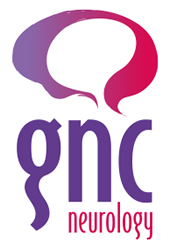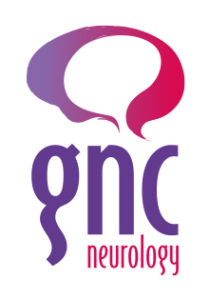
Interesting Papers
Injury primes mutation-bearing astrocytes for dedifferentiation in later life
Despite their latent neurogenic potential, most normal parenchymal astrocytes fail to dedifferentiate to neural stem cells in response to injury. In contrast, aberrant lineage plasticity is a hallmark of gliomas, and this suggests that tumor suppressors may constrain astrocyte dedifferentiation. Here, we show that p53, one of the most commonly inactivated tumor suppressors in glioma, is a gatekeeper of astrocyte fate.
read more…
Management of traumatic brain injury in the non-neurosurgical intensive care unit: a narrative review of current evidence
Each year, approximately 70 million people suffer traumatic brain injury, which has a significant physical, psychosocial and economic impact for patients and their families. It is recommended in the UK that all patients with traumatic brain injury and a Glasgow coma scale ≤ 8 should be transferred to a neurosurgical centre. However, many patients, especially those in whom neurosurgery is not required, are not treated in, nor transferred to, a neurosurgical centre. This review aims to provide clinicians who work in non-neurosurgical centres with a summary of contemporary studies relevant to the critical care management of patients with traumatic brain injury.
read more…
Traumatic brain injury: progress and challenges in prevention, clinical care, and research
Traumatic brain injury (TBI) has the highest incidence of all common neurological disorders, and poses a substantial public health burden. TBI is increasingly documented not only as an acute condition but also as a chronic disease with long-term consequences, including an increased risk of late-onset neurodegeneration. The first Lancet Neurology Commission on TBI, published in 2017, called for a concerted effort to tackle the global health problem posed by TBI.
read more…
Lifetime Traumatic Brain Injury and Cognitive Domain Deficits in Late Life: The PROTECT-TBI Cohort Study
Traumatic brain injury (TBI) causes cognitive impairment but it remains contested regarding which cognitive domains are most affected. Further, moderate-severe TBI is known to be deleterious, but studies of mild TBI (mTBI) show a greater mix of negative and positive findings. This study examines the longer-term cognitive effects of TBI severity and number of mTBIs in later life. We examined a subset (n = 15,764) of the PROTECT study, a cohort assessing risk factors for cognitive decline (ages between 50 and 90 years). Participants completed cognitive assessments annually for 4 years.
read more…
Age at injury is associated with the long-term cognitive outcome of traumatic brain injuries
Age at injury (AAI) has been shown to influence cognitive outcome in patients with traumatic brain injuries. However, the association between AAI and the long-term cognitive outcome of TBI is debatable. On one hand, the AAI was not associated with the cognitive outcome measured within the first year after TBI for children who sustained TBI before 6 years of age. The AAI was also not an effective predictor for the long-term cognitive outcome in patients with a history of severe TBI when they were evaluated at an average of 14 years after TBI
read more…
Antioxidant Therapies in Traumatic Brain Injury
Abstract: Due to a multiplicity of causes provoking traumatic brain injury (TBI), TBI is a highly heterogeneous pathology, characterized by high mortality and disability rates. TBI is an acute neurodegenerative event, potentially and unpredictably evolving into sub-chronic and chronic neurodegenerative events, with transient or permanent neurologic, cognitive, and motor deficits, for which no valid standardized therapies are available. A vast body of literature demonstrates that TBI-induced oxidative/nitrosative stress is involved in the development of both acute and chronic neurodegenerative disorders. Cellular defenses against this phenomenon are largely dependent on low molecular weight antioxidants, most of which are consumed with diet or as nutraceutical supplements. A large number of studies have evaluated the efficacy of antioxidant administration to decrease TBI-associated damage in various animal TBI models and in a limited number of clinical trials.
read more…
Tranexamic acid to reduce head injury death in people with traumatic brain injury: the CRASH-3 international RCT
Tranexamic acid safely reduces mortality in traumatic extracranial bleeding. Intracranial
bleeding is common after traumatic brain injury and can cause brain herniation and death. We assessed
the effects of tranexamic acid in traumatic brain injury patients.
read more…
Cognitive changes and dementia risk after traumatic brain injury: Implications for aging military personnel
There is growing evidence that a history of traumatic brain injury (TBI) places individuals at greater risk for developing neurodegenerative diseases such as dementia of the Alzheimer’s type (DAT) and other dementias across the life span. Although much of the research has focused on the increased risk associated with moderate-to-severe brain injuries, emerging evidence suggests that mild head injuries, particularly repeated mild injuries, may also serve as a risk factor [6–8]. Both the Department of Defense (DoD) and the Department of Veterans Affairs (VA) have recognized the importance of better understanding this relationship, particularly given the incidence of TBI in the military resulting from combat exposures, the growing evidence of dementia risk after TBI, emotional disorders and other nonspecific factors, and concern for the implications of these factors on the aging service member.
read more…
Military-related traumatic brain injury and neurodegeneration
In military settings, most traumatic brain injuries (TBIs) are mild TBIs (mTBIs). For U.S. forces deployed to Afghanistan and Iraq in Operation Enduring Freedom (OEF), Operation Iraqi Freedom (OIF), and Operation New Dawn (OND), blast exposure is the leading cause of mTBI, although service members are also susceptible to concussions [1]. Estimates of the prevalence of mTBI among returning service members range from 15.2% to 22.8%, affecting as many as 320,000 troops [1–4]. Despite their frequency, the acute and long-term effects of mTBI have been a relatively unexplored area of medical inquiry until very recently.
read more…
Unique diagnostic signatures of concussion in the saliva of male athletes: the Study of Concussion in Rugby Union through MicroRNAs (SCRUM)
Objective To investigate the role of salivary small noncoding RNAs (sncRNAs) in the diagnosis of sport-related concussion.
read more…
Concussion and long-term cognitive function among rugby players—The BRAIN Study
Since chronic traumatic encephalopathy (CTE) was first described as a nosological entity, scientific attention has focused on the long-term sequelae of sports-related mild traumatic brain injury, or concussion. Neuropathological changes suggestive of CTE have been reported in boxers, American football players, ice hockey players, football (soccer) players, and rugby players. However, these reports are mostly based on case series, with limited sample sizes. The findings among American footballers showed also that length of career was associated with more severe neuropathology, suggesting a possible role of subconcussive head impacts.
read more…
Pathological Computed Tomography Features Associated With Adverse Outcomes After Mild Traumatic Brain Injury
A computed tomography (CT) with positive results for intracranial hemorrhage is the gold-standard diagnostic biomarker for acute TBI. Many (although not all) studies have shown that complicatedmild TBI (mTBI), ormTBI with a positive head CT result, is associated with worse outcomes compared with uncomplicated mTBI. However, positive head CT results include a wide spectrum of intracranial lesions. A more precise understanding of the prognostic importance of CT abnormalities inmTBI, beyond the simple presence vs absence of abnormal findings on CT, is timely.
read more…

